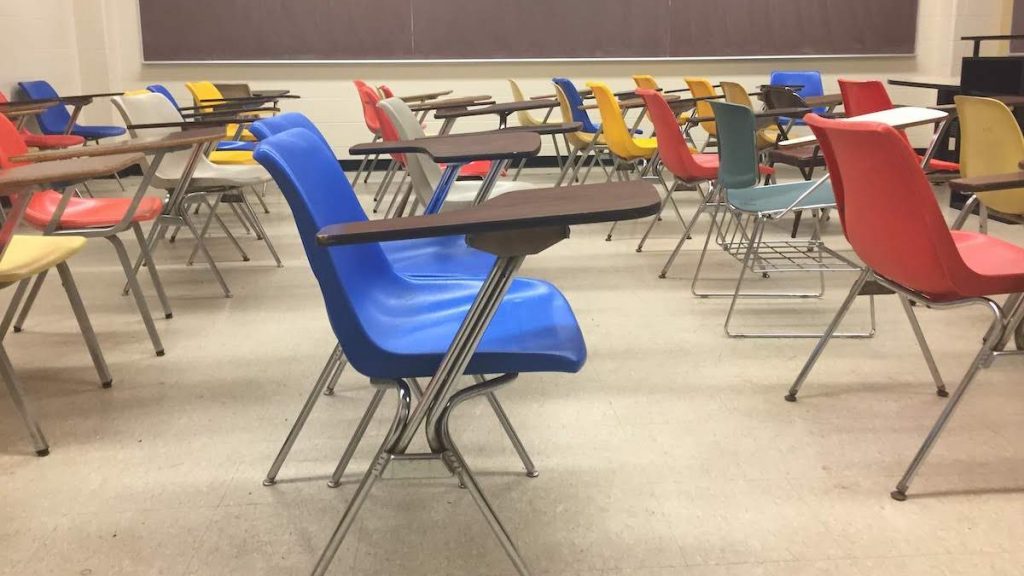The Environment, Criminal Justice and Education Stories to Watch in 2020
This will be a huge year for Michigan news, even without roads and the election.

Gov. Gretchen Whitmer spent lots of time talking about roads, jobs, and healthcare during her State of the State speech. But there are a number of other issues that are likely to dominate headlines throughout 2020.
As part of the weekly series MichMash, Cheyna Roth and Jake Neher talk about education, criminal justice, and environmental issues that you should be following this year.
Click on the player above to hear Neher and Roth discuss the topics to follow in 2020.
Contaminated environmental sites just the tip of the iceberg
Whether it’s green ooze or PFAS contamination, there is so much going on with the state of Michigan’s environment right now.
There’s at least one thing we can be sure of when it comes to these contaminants: what we know about now is just the tip of the iceberg.
We’re likely to see concerns, not only with the things that we’ve seen in the past — contaminated drinking water, concerns about toxic chemicals from old industrial sites and military bases — but the problem is likely evolve over the next year.

Criminal justice reform gains momentum
This has been a big issue in Michigan and elsewhere for years now. But right now, there’s some real momentum on getting something done about this.
A task force co-chaired by Lt. Gov. Garlin Gilchrist and Michigan Supreme Court Chief Justice Bridget Mary McCormick just made recommendations that would overhaul the entire front end of the criminal justice system.
RELATED: Michigan’s Debtors Prisons? Task Force Makes Recommendations for Overhauling Jails System
Criminal justice is a $2 billion+ yearly line item here in Michigan for prisons alone.
McCormack says dealing with jails and the pre-trial portion of this would be pretty huge.
“This is a pretty important part of it, because it’s the front end of the criminal justice system,” she told Stephen Henderson on WDET’s Detroit Today. “And to the extent that we can be more careful about who we funnel into that system, we’re going to be a huge step ahead of probably every other state in the country, Michigan can really be a national leader if it acts on these recommendations.”
Third grade reading law puts schools in tough position, especially in low-income communities of color
Michigan’s third grade reading law would require that many students who fail the third grade reading test would have to repeat third grade. It will take full effect this year.
Critics say it will disproportionately affect communities of color and low income schools.
Gov. Whitmer has said that she is actually looking at ways to undercut the law and make sure that the impact isn’t so huge on those communities.
Supporters of the law say the state should no longer simply advance students to the next grade because they get a year older. They say third grade is a critical year for student literacy, and they need to be proficient readers to do well during the rest of their educational career.
Opponents say holding kids back can have devastating emotional and social impacts, and that the answer is more early intervention and support for literacy programs.
Support the news you love.
Here at WDET, we strive to make our journalism accessible to everyone. As a non-profit public media institution, we maintain our journalistic integrity through independent support from readers like you. Because you value WDET as your source of news, music, and conversation, please make a gift of support today. Even $5 helps!
